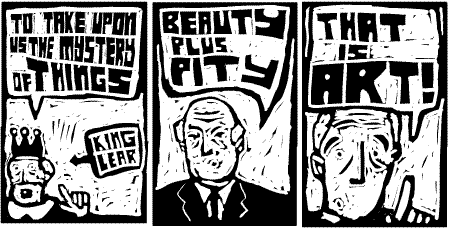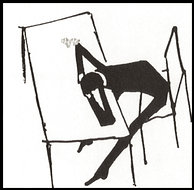
- When you’re not reading Nabokov’s lectures on literature, head over to MIT’s OpenCourseWare project: free access to MIT course materials. An unbelievable resource.
- Ever wondered why the New Yorker continues to print John Updike stories that are so long and suck so bad? Well, they have first-reading rights with him. (As they do with many authors.) Anything he writes, they get to look at first. Not to mention you get paid $1 a word for a short story at the New Yorker. (Like I always say, never trust a writer who gets paid by the word.) Listen and weep.
- Here’s Edward Tufte on cartooning.
- Virginia Tufte’s Artful Sentences “presents and comments on more than 1000 excellent sentences.”
- These new Penguin Classics Deluxe Editions are fantastic.
- Fantagraphics releases I’m looking forward to: 1, 2, and 3.
- Here’s Alan Moore on the BBC, talking about the advantages of having lived in one town all your life. More of Moore on YouTube.
- And finally: the Village Voice voted Gil Mantera best show of SXSW. Youngstown, Ohio where there are two things—Gil Mantera’s Party Dream and the mafia.

